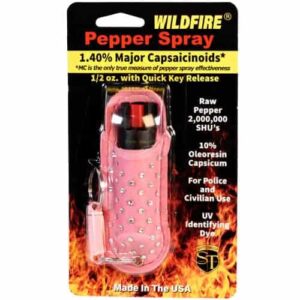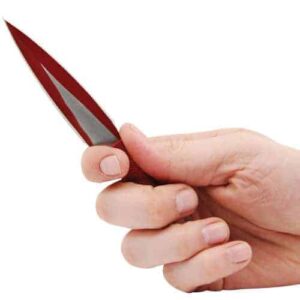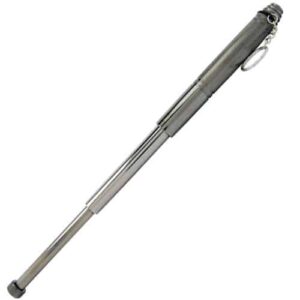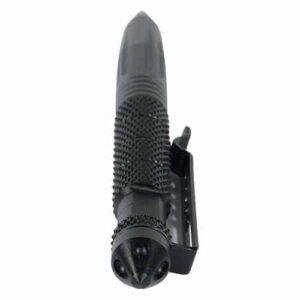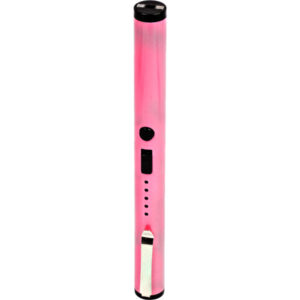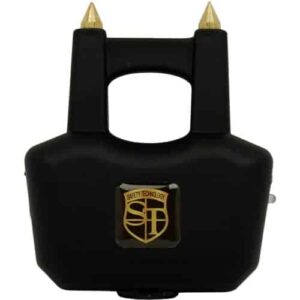You’re in for a fascinating read with “Pepper Spray Raccoon.” This piece uniquely bounds into the extraordinary tale of what happens when a common household self-defense tool meets urban wildlife. While navigating this story, you’ll journey through unexpected laughter and surprising insights, as we explore how a raccoon’s encounter with pepper spray becomes a wild anecdote. As you embark on this narrative, be prepared for a good chuckle and a fresh perspective on how both humans and animals adapt to unusual circumstances.
Table of Contents
Toggle1. What is Pepper Spray Raccoon?
Pepper Spray Raccoon is a term that refers to the practice of using pepper spray as a method of deterring raccoons from private property. Pepper spray contains Capsaicin, a derivative of chili peppers, which causes irritation and temporary blindness when sprayed on an animal’s eyes or inhalation system.
2. Why is Pepper Spray Used on Raccoons?
When it comes to dealing with pesky raccoons, pepper spray serves multiple purposes.
2.1. Pest Control
Raccoons are notorious for being problematic and difficult pests. They’re known to forage in garbage bins, cause structural damage to homes, and are potential carriers of diseases. Pepper spray is an inexpensive pest control method to discourage these nocturnal creatures from invading your home.
2.2. Self-Defense
Raccoons can behave aggressively if they feel threatened. You can use pepper spray as a self-dense tool to protect yourself from potential raccoon attacks, especially if you accidentally encounter them during their active period at night.
2.3. Minimizing Damage
Raccoons are known for causing damage as they search for food and shelter. They can damage gardens, tear up shingles, and even chew through wires. Pepper spray serves as an effective deterrent, keeping the raccoons at bay and minimizing any potential damage they can cause.
2.4. Non-Lethal Deterrent
Taking a humane approach, pepper spray is a non-lethal deterrent. Unlike other methods such as poisoning or trapping, pepper spray does not cause long-term harm or death to raccoons, but merely discomfort that discourages future intrusion.

3. Effectiveness of Pepper Spray on Raccoons
While pepper spray can be effective, its impact on raccoons varies.
3.1. Immediate Effects
Upon immediate contact, Pepper spray causes significant discomfort to raccoons. Their eyes will water, and they may cough or sneeze due to the burning sensation, which usually causes them to scurry away.
3.2. Temporary Discomfort
Pepper spray’s effects are temporary. Raccoons recover fully after removal from the source of irritation, but the unpleasant memory generally discourages them from returning.
3.3. Short-Term Deterrence
Pepper spray serves as a short-term solution to deter raccoons. However, it may not be as effective in the long run, especially if food sources remain readily available.
3.4. Variable Impact
While pepper spray generally works on most raccoons, its impact can vary from one raccoon to another, depending on its size, age, health status, and previous exposure to similar deterrents.
4. Proper Use of Pepper Spray on Raccoons
Using pepper spray on raccoons requires caution to ensure personal safety and legal compliance.
4.1. Safety Precautions
When using pepper spray, it’s crucial to protect yourself. You should avoid inhaling the spray or getting it in your eyes. It’s also advisable to wear gloves and long sleeves to protect your skin.
4.2. Distance and Aim
Keep a safe distance from the raccoon. Aim correctly for the spray to be successful, preferably at the raccoon’s face but without prolonged exposure to avoid causing severe discomfort.
4.3. Spray Duration
Short burst sprays are advised as stuffing the raccoon with too much can cause overexposure.
4.4. Avoiding Contact
After spraying, stay clear of the raccoon to allow it time to process the discomfort and retreat. Physical contact might provoke it, causing it to react defensively.
4.5. Legal Considerations
Before using pepper spray on raccoons, ensure you are abiding by local laws and regulations as misuse can lead to penalties.

5. Alternatives to Pepper Spray for Raccoons
If using pepper spray is not preferable, there are other alternatives to deter raccoons.
5.1. Home Remedies
Home remedies like spraying a mix of hot sauce and water can dissuade raccoons. Others use ammonia-soaked rags as raccoons detest the smell of ammonia.
5.2. Noise Deterrents
Raccoons dislike loud noises. A purposefully placed radio, a set of wind chimes, or motion-activated noise-makers can deter raccoons.
5.3. Motion-Activated Devices
Motion-activated devices like sprinklers or lights can effectively spook raccoons and discourage them from returning.
5.4. Professional Wildlife Control
When all else fails, it might be time to call professional wildlife control services. They possess the knowledge and equipment to handle raccoon issues safely and humanely.
6. Key Considerations Before Using Pepper Spray
Before resorting to pepper spray, it’s essential to weigh various crucial factors.
6.1. Local Regulations
Different regions have varied rules and regulations regarding the use of pepper spray on wildlife. Ensure you know and understand your local regulations before proceeding.
6.2. Potential Harm to Other Animals
While aimed at raccoons, other animals or pets may get unintentionally exposed to the effects of pepper spray. Make sure to use it responsibly.
6.3. Raccoon Behavior and Population
Understanding raccoon behavior and local population can provide insight into the best deterrent to use.
6.4. Evaluating the Situation
It’s necessary to evaluate the situation thoroughly. Is the raccoon posing a significant problem, or is there a chance for cohabitation without much inconvenience? Your response should align with the seriousness of the problem.

7. How to Treat a Raccoon after Pepper Spray Exposure
Should a raccoon be accidentally sprayed with a high dose of pepper spray, there are ways to mitigate the discomfort.
7.1. Safety First
Ensure your safety first. A distressed raccoon can become aggressive; hence it might be wiser to call professionals.
7.2. Minimizing Stress
Try to minimize stress for the raccoon. Keep the area quiet and free of other animals or humans.
7.3. Rinsing and Cleaning
If possible, and safe to do so, gently rinse the raccoon’s eyes with fresh water to alleviate the burning sensation.
7.4. Monitor for Symptoms
Be on the lookout for severe symptoms such as prolonged discomfort, extreme agitation, or failure to retreat.
7.5. Seek Veterinarian Assistance
If severe symptoms persist, it’s prudent to seek professional assistance, preferably a wildlife veterinarian.
8. Benefits and Drawbacks of Pepper Spray for Raccoons
Like any other method, using pepper spray on raccoons has its advantages and disadvantages.
8.1. Advantages
Pepper spray is a cost-effective, readily available, and non-lethal deterrent against raccoons. It’s easy to use and can provide immediate results.
8.2. Disadvantages
On the downside, it may not provide a long-term solution if the attraction, such as food sources, still exists. Overuse can also potentially harm the raccoon. Moreover, it’s not always legal to use in every region.

9. Legal and Ethical Considerations
The use of pepper spray on raccoons is not only a legal matter but also an ethical one.
9.1. Local Laws and Restrictions
Always adhere to local laws and regulations regarding wildlife control. Misusing pepper spray could lead to legal repercussions.
9.2. Animal Welfare Concerns
Balancing pest control with animal welfare is essential. Pepper spray should be used responsibly and sparingly, causing minimal harm to the animal.
9.3. Responsible Use
Ensure you understand how to properly use pepper spray and recognize when it is necessary, all while showing respect for these creatures’ right to live in their natural habitat.
10. Conclusion
Pepper spray can effectively manage nuisance caused by raccoons. However, it’s essential to use it responsibly, Considering local laws, potential risks, and the overall welfare of the raccoon. Remember, each situation is unique and might require a different approach or intervention from wildlife control professionals.




